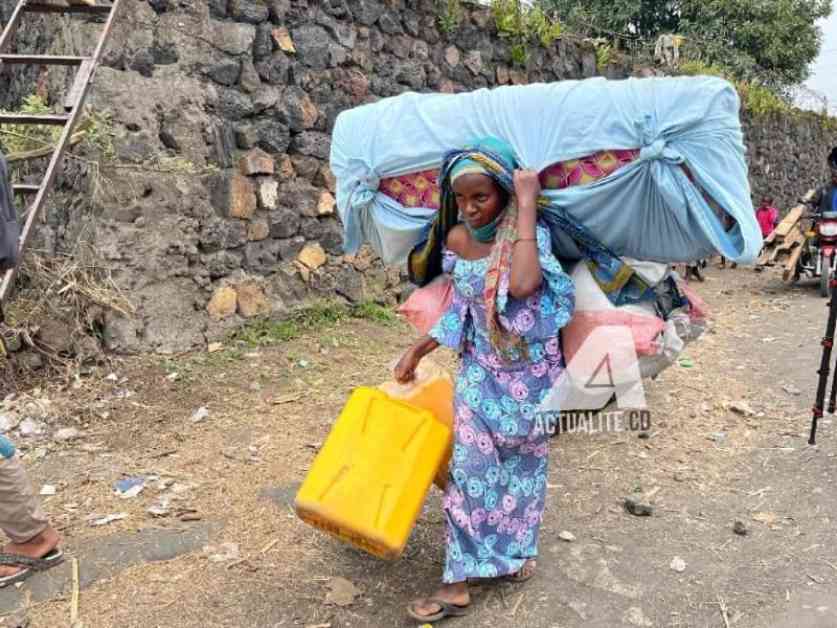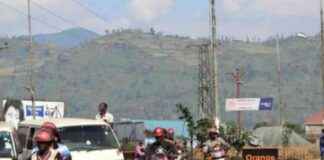In a recent report shared with humanitarian partners covering the period from February 23 to March 6, 2025, the United Nations Office for the Coordination of Humanitarian Affairs (OCHA) highlighted the challenges surrounding the sustainable return of over 78,000 individuals to Masisi, Nord-Kivu. This region has been grappling with the aftermath of violent conflicts, displacement, and destruction of critical infrastructure, leaving returnees in a precarious situation as they struggle to rebuild their lives.
The Concerns of Returnees in Masisi, Nord-Kivu
According to OCHA, more than 17,000 people returned to the Masisi territory in February, representing 2,875 households. Many of these individuals resettled in the Kirotshe health zone within the Karuba health area. However, there are growing concerns about the plight of these returnees, who join the ranks of over 33,000 individuals who had already returned in January. The harsh reality facing these returnees is one of extreme vulnerability, exacerbated by the destruction of vital infrastructure by warring factions. This destruction hampers their access to healthcare, education, and means of livelihood, creating significant obstacles to their sustainable reintegration into society.
A Trend of Spontaneous Returns
The trend of spontaneous returns is evident among many occupants of displacement sites in Goma and its environs, as they continue to return to their villages in Nord-Kivu, particularly in the Masisi territory. OCHA also reports that over 28,000 individuals have returned to villages in the Mweso health zone, bringing the total number of returnees to more than 78,000 in Masisi since January 2025. These returnees are faced with the daunting task of rebuilding their lives from scratch in a region marred by conflict and instability.
The Call for Coordinated Humanitarian Action
As the primary coordinator of global emergency response to save lives and protect people in times of humanitarian crisis, OCHA emphasizes the critical need for effective, principle-based humanitarian action that is inclusive and comprehensive. A coordinated inter-agency approach is essential to ensure the safety of returnees, access to basic services, and the rehabilitation of essential infrastructure such as water sources, schools, and health centers. Monitoring the respect of human rights and preventing land conflicts are also identified as key priorities. Incorporating an early recovery and resilience-building approach into humanitarian planning can enhance the sustainability of these return efforts, fostering long-term stability and community resilience.
Violent Clashes and Humanitarian Impacts
In the Masisi health zone, violent clashes between the M23 rebel group and various local armed factions erupted between February 18 and 25, affecting several localities including Biiri, Masisi Centre, Katale, Lwanguba, Kanii, Kahongole, Kibuye, and Lushebere. These conflicts resulted in the tragic deaths of at least four civilians, including a humanitarian worker who was fatally shot by a stray bullet on February 20 while at their base. A refugee child on the same site was also injured during the clashes. Additionally, an artillery shell struck another humanitarian installation, fortunately without causing any casualties.
In the Mweso health zone, hostilities broke out overnight on February 26-27 in Kirumbu, Katsiru, Mihara, Kinyabyitsi, Buleusa, Rusamambu, and Mont Mpeti, leading to mass displacements of populations towards Pinga, Kalembe, Kanyabayonga, Mutongo, and Mweso. The exact toll of human losses and the number of displaced individuals remain unknown. These outbreaks of violence shattered a period of relative calm in the region following earlier attacks on February 24-25 in Bulende, Bukonde, and Kalembe Centre, underscoring the volatile and unpredictable nature of the security situation in Nord-Kivu.
Enhanced Humanitarian Response Efforts
In response to the escalating humanitarian needs in Nyiragongo, Masisi, and Rutshuru territories, OCHA is intensifying coordination with Clusters and working groups to strengthen humanitarian interventions. With the influx of displaced families returning to their communities, efforts are focused on a targeted three-month emergency response plan. Rapid needs assessments and harmonized partner interventions are prioritized to ensure swift access to life-saving assistance. The goal is to provide effective coverage in water, health, shelter, and protection while facilitating on-the-ground actor coordination for a more agile and contextually relevant response.
As the situation continues to evolve in Nord-Kivu, OCHA remains committed to supporting vulnerable populations and promoting sustainable recovery efforts in the face of ongoing challenges. The path to long-term stability and resilience for returnees in Masisi hinges on collaborative, principled humanitarian action that addresses their immediate needs while laying the groundwork for a more secure and prosperous future.

















